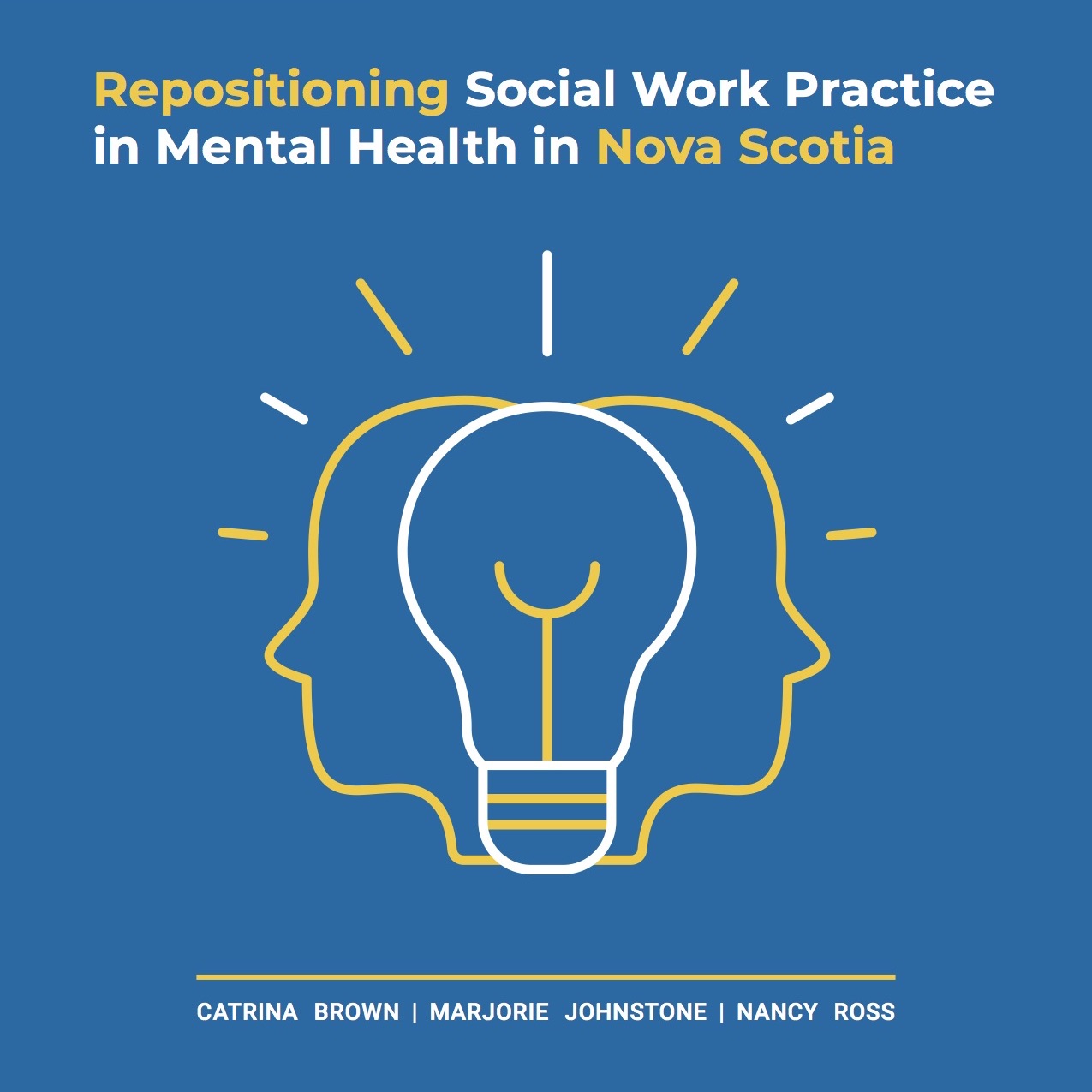
We are grateful for the moral courage of the social workers who participated in the survey and focus groups for the research paper published by NSCSW in January, Repositioning Social Work Practice in Mental Health in Nova Scotia.
We welcome all readers to this NSCSW mental health paper. It is being introduced at a time when many are reflecting on how the COVID-19 pandemic has shaken our society. More people in this province have reported higher rates of anxiety levels than anywhere else in Canada, according to a national poll commissioned by Mental Health Research Canada. About 27 per cent of Nova Scotians described their anxiety level as high since the pandemic began, a 20 per cent jump from pre-pandemic levels. That’s five points higher than the national average of 22 per cent who reported high anxiety levels during the pandemic. Also, about 16 per cent of Nova Scotians have reported high levels of depression since the pandemic, more than double the pre-pandemic number of seven per cent. That compares to 13 per cent nationwide and six per cent respectively. Alongside these numbers are also the long-standing calls by Black and Indigenous Nova Scotians for systemic reform to address both colonial and racist policies that continue to harm.
What we must come to realize is that each person’s mental health is shaped by various social, economic and physical environments operating at different stages of life. Risk factors for many common mental health issues are heavily associated with social inequalities: the greater the inequality, the higher the risk. We must recognize that the impact of the last 7 months will have a long-lasting effect if we do not respond with policies and programs that view mental wellness as a life long journey fostered by healthy communities. If we fail to respond in a timely and robust manner then this impact will grow more and more severe in the coming years.
With this paper the NSCSW aims to create a critical discourse on the political, economic and social issues that impact the mental wellness of Nova Scotians. Through this paper and the campaigns to follow, it is our goal to reframe how we view mental health, and to present new models of care and social policies that can create meaningful change in this province towards greater mental wellness. As social workers we have the tools, and vision to support this change.
Our professional values — embedded in the respect for the inherent dignity and worth of persons, pursuit of social justice, service to humanity and integrity in professional practice — call on each of us to take action towards a better mental health and addictions system.
Through this paper we will articulate the core values and principles that should frame and drive policy decisions to foster greater wellbeing and mental wellness.
The paper will allow the NSCSW, its stakeholders and allies to set future advocacy direction, set priorities for action and act as a platform for collaboration to challenge and engage the current worldview on mental health. More specifically, the advocacy paper has three main goals:
- To influence and guide NSCSW decision-making to promote greater well-being and mental health.
- To provide a formalized tool for the NSCSW, members and stakeholders to utilize in order to provide critical analysis and provide a public discourse for mental health polices and political positioning in Nova Scotia. The paper will be a tool that social workers and allies can use to highlight alternatives to the dominant discourse on mental health.
- To co-ordinate information and activities between NSCSW, community, stakeholders and all levels of government in order to effectively advocate for fundamental changes to mental health systems.
We hope that you find this useful, and see your voice reflected in it.
In Solidarity,
Alec Stratford MSW, RSW
Executive Director/Registrar
Nova Scotia College of Social Workers






when get to link all pages other then the cover are blank
Hi Patrick, here’s a shortcut to download the report PDF: https://nscsw.org/reposition